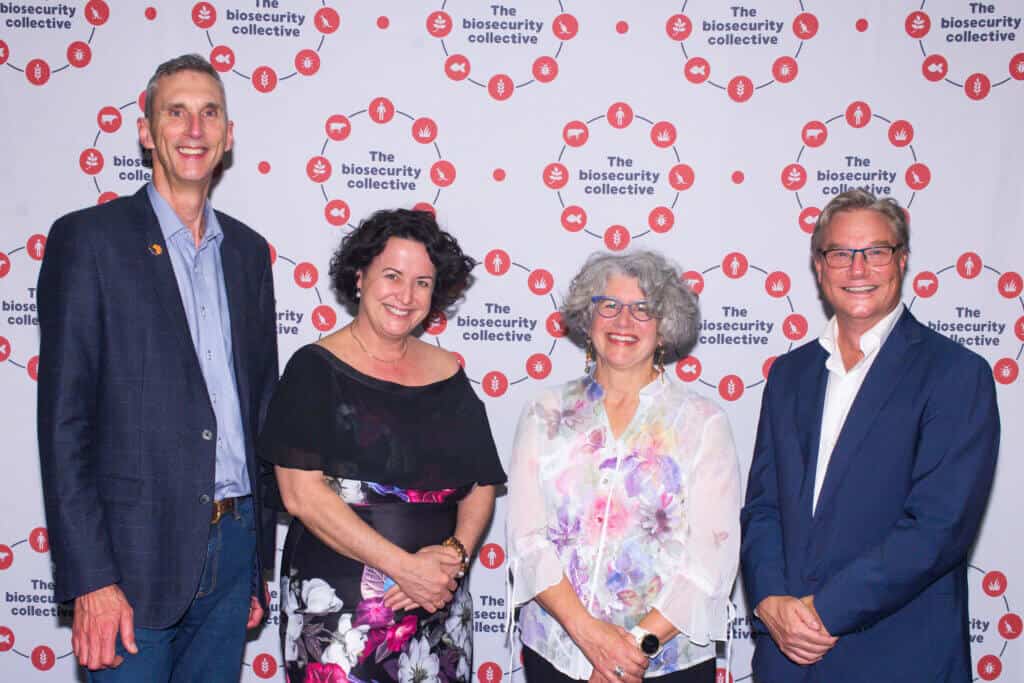A new international effort, the Global Environmental Biosecurity Initiative, has been officially launched at the IUCN World Conservation Congress in Abu Dhabi this week to strengthen global defences against invasive species, which are recognised as the single greatest driver of biodiversity loss on islands and a major contributor to global extinctions.
Led by international environmental NGO 4nature, run by our former CEO Andrew Cox, the initiative aims to overhaul and expand international biosecurity arrangements to specifically protect nature and critical ecosystem services.
The move is a direct response to the urgent need for action outlined in the 2023 IPBES report on invasive alien species and directly supports Target 6 of the Kunming-Montreal 2030 Global Biodiversity Framework.
‘We are facing a crisis where human travel and trade are constantly moving invasive plants, animals, and pathogens around the world, severely disrupting ecosystems and harming native life,’ Global Environmental Biosecurity Initiative lead at 4nature, Andrew Cox said.
‘While we have strong global rules to protect agriculture and human health, we desperately need a comprehensive global shield to protect nature. This initiative will build that shield by securing the systemic changes and resources required to make biosecurity work for biodiversity.’
Invasive Species Council CEO Jack Gough said:
‘Invasive species are a wicked issue that is worsening, yet they often fall between the gaps of international policy.
‘This initiative steps in to provide the critical focus and drive needed to align global efforts, which will ultimately translate to better outcomes for native species protection on the ground.’
The initiative’s focus on the pathways of invasion was highlighted by Piero Genovesi, Chair of the IUCN Invasive Species Specialist Group.
‘Prevention of new introductions is by far the most effective and less costly way we have for addressing invasions. Pathways – like shipping containers, e-commerce, and global travel – are the superhighways for invasive species. Effective pathway management is the most cost-effective solution we have to stem the tide of new invasions.
‘This new Initiative will play a vital role in identifying where these global pathways are weakest and driving the national and international actions necessary to plug those gaps, saving countless species from extinction.’
Over the next 2 years, the initiative will focus on three key objectives:
- Identify Gaps: Reviewing current international systems and identifying areas for improvement.
- Identify Needs: Confirming the necessary information, tools, and resources.
- Secure Change: Working with sympathetic countries and institutions to implement required changes and secure funding.
4nature will undertake this work in collaboration with the IUCN and engage with global processes under the Convention on Biological Diversity, the Convention on the Law of the Sea, the International Plant Protection Convention and relevant trade agreements.








